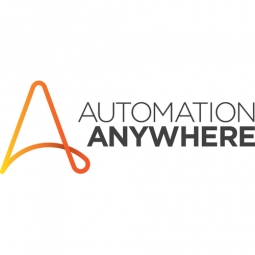Technology Category
- Analytics & Modeling - Robotic Process Automation (RPA)
- Infrastructure as a Service (IaaS) - Virtual Private Cloud
Applicable Industries
- Finance & Insurance
Applicable Functions
- Maintenance
Use Cases
- Leasing Finance Automation
- Material Handling Automation
The Customer
OneSource Virtua
About The Customer
Founded in 2008, OneSource Virtual is a pioneer of Business Process as a Service (BPaaS) outsourcing. As a Workday partner, it has helped more than 1,300 companies with everything from deployment to maintenance to payroll and more. The company of 950 employees is based in Dallas, TX and has additional locations across North America and Europe. OSV is committed to providing its customers with efficient and accurate services, and it continually seeks ways to improve its processes and offerings. The company's decision to implement Robotic Process Automation (RPA) is a testament to its dedication to innovation and customer service.
The Challenge
OneSource Virtual (OSV), a pioneer of Business Process as a Service (BPaaS) outsourcing, began exploring the implementation of Robotic Process Automation (RPA) in late 2018. The company aimed to increase efficiency and accuracy in predefined processes to provide more benefits to end-users within the Workday ecosystem. The challenge was not only to find a platform that would deliver the best technology but also a partner committed to providing expertise and support. The situation became more critical in March 2020 when the United States started feeling the economic impact of the COVID-19 pandemic. OSV had to pivot from its current automated processes and turn to RPA to help with new payroll tax legislation, such as the CARES Act, passed to provide financial assistance to businesses. This required multi-system updates to the company’s proprietary tax software to prepare for a new level of data and tracking.
The Solution
After conducting a Request for Information (RFI) and Request for Proposal (RFP), OSV chose Automation Anywhere as its RPA partner in December 2018. By January 2019, internal development around automation had started and was running full speed. When the CARES Act was passed, OSV used RPA to manage the new payroll tax legislation. The company used IQ Bot to extract garnishment notifications received through local, state, and federal jurisdiction levels. Then, RPA was used to get business rules to complete XMLs into Salesforce and Workday. A COVID-19 MetaBot was developed to extract data from the proprietary payroll tax system, generate OSV customer support cases using Salesforce REST APIs, attach password-protected extracts to generated cases, track and audit activities in a dedicated secure SQL server database, and generate internal reporting for business stakeholders.
Operational Impact
Quantitative Benefit

Case Study missing?
Start adding your own!
Register with your work email and create a new case study profile for your business.
Related Case Studies.

Case Study
Real-time In-vehicle Monitoring
The telematic solution provides this vital premium-adjusting information. The solution also helps detect and deter vehicle or trailer theft – as soon as a theft occurs, monitoring personnel can alert the appropriate authorities, providing an exact location.“With more and more insurance companies and major fleet operators interested in monitoring driver behaviour on the grounds of road safety, efficient logistics and costs, the market for this type of device and associated e-business services is growing rapidly within Italy and the rest of Europe,” says Franco.“The insurance companies are especially interested in the pay-per-use and pay-as-you-drive applications while other organisations employ the technology for road user charging.”“One million vehicles in Italy currently carry such devices and forecasts indicate that the European market will increase tenfold by 2014.However, for our technology to work effectively, we needed a highly reliable wireless data network to carry the information between the vehicles and monitoring stations.”

Case Study
Safety First with Folksam
The competitiveness of the car insurance market is driving UBI growth as a means for insurance companies to differentiate their customer propositions as well as improving operational efficiency. An insurance model - usage-based insurance ("UBI") - offers possibilities for insurers to do more efficient market segmentation and accurate risk assessment and pricing. Insurers require an IoT solution for the purpose of data collection and performance analysis

Case Study
Smooth Transition to Energy Savings
The building was equipped with four end-of-life Trane water cooled chillers, located in the basement. Johnson Controls installed four York water cooled centrifugal chillers with unit mounted variable speed drives and a total installed cooling capacity of 6,8 MW. Each chiller has a capacity of 1,6 MW (variable to 1.9MW depending upon condenser water temperatures). Johnson Controls needed to design the equipment in such way that it would fit the dimensional constraints of the existing plant area and plant access route but also the specific performance requirements of the client. Morgan Stanley required the chiller plant to match the building load profile, turn down to match the low load requirement when needed and provide an improvement in the Energy Efficiency Ratio across the entire operating range. Other requirements were a reduction in the chiller noise level to improve the working environment in the plant room and a wide operating envelope coupled with intelligent controls to allow possible variation in both flow rate and temperature. The latter was needed to leverage increased capacity from a reduced number of machines during the different installation phases and allow future enhancement to a variable primary flow system.

Case Study
Automated Pallet Labeling Solution for SPR Packaging
SPR Packaging, an American supplier of packaging solutions, was in search of an automated pallet labeling solution that could meet their immediate and future needs. They aimed to equip their lines with automatic printer applicators, but also required a solution that could interface with their accounting software. The challenge was to find a system that could read a 2D code on pallets at the stretch wrapper, track the pallet, and flag any pallets with unread barcodes for inspection. The pallets could be single or double stacked, and the system needed to be able to differentiate between the two. SPR Packaging sought a system integrator with extensive experience in advanced printing and tracking solutions to provide a complete traceability system.

Case Study
Transforming insurance pricing while improving driver safety
The Internet of Things (IoT) is revolutionizing the car insurance industry on a scale not seen since the introduction of the car itself. For decades, premiums have been calculated using proxy-based risk assessment models and historical data. Today, a growing number of innovative companies such as Quebec-based Industrielle Alliance are moving to usage-based insurance (UBI) models, driven by the advancement of telematics technologies and smart tracking devices.
Case Study
Enhancing Security and Compliance in Remitly's Global Money Transfer Service with Fastly
Remitly, an online remittance service, was faced with the challenge of securing its proprietary global transfer network. The company needed a security solution that could meet PCI requirements and protect customers' sensitive transactions through its mobile application. The solution had to be capable of defending against new and emerging attack types without impacting performance. Remitly also had to deal with irregular traffic patterns, such as a sudden spike in account transfers from a small network segment on the Pacific coastline of South America. The company needed to determine in real time whether such traffic indicated an attack or valid requests. A traditional web application firewall (WAF) would not be able to distinguish this traffic, potentially leading to customer frustration if the IP was blacklisted.







